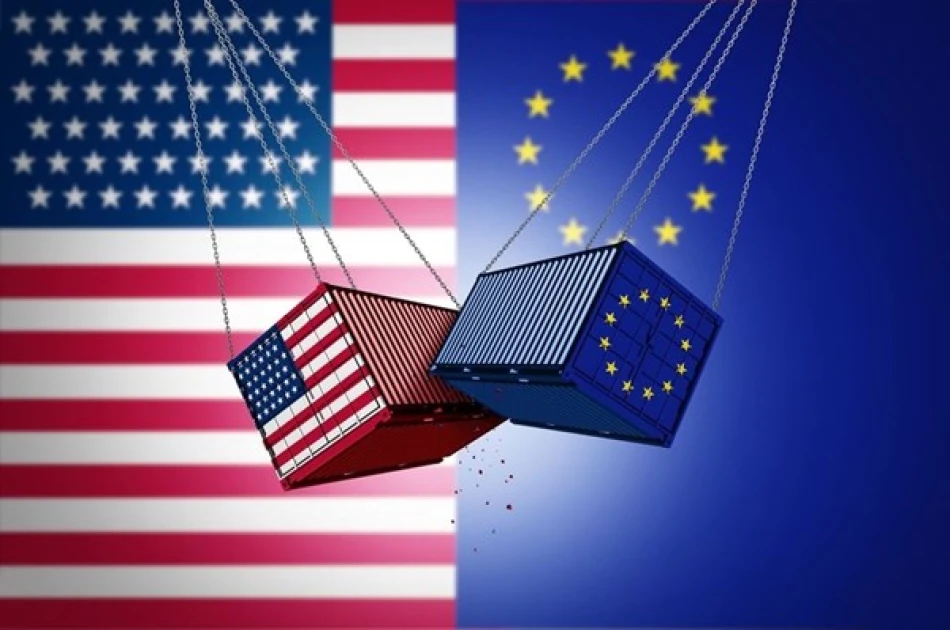
EU-US Trade Deal Stalls Over Digital Platform Regulation Dispute
EU-US Trade Deal Hits Digital Wall as Brussels Refuses to Compromise on Tech Regulation
The much-anticipated trade agreement between the United States and European Union, initially announced on July 27, faces a critical impasse over Europe's Digital Services Act (DSA). While Brussels has offered significant economic concessions—including commitments to purchase large quantities of American energy and accept tariffs up to 15%—EU officials are drawing a hard line on their digital platform regulations, setting up a clash that could derail the entire deal.
The Digital Services Act: Europe's Non-Negotiable Red Line
The DSA represents the EU's most ambitious attempt to regulate Big Tech, imposing strict content moderation requirements on major digital platforms. European institutions have made clear that platform regulation cannot become a bargaining chip in trade negotiations with Washington, particularly given that most of these platforms are American companies like Meta, Google, and X (formerly Twitter).
This stance reflects a broader European strategy to assert digital sovereignty in the face of American tech dominance. The DSA, which came into full effect in 2024, requires platforms to conduct risk assessments, provide transparency reports, and give users more control over algorithmic content—measures that have already cost tech companies millions in compliance expenses.
Washington's Push for Regulatory Relief
According to European sources, the United States is actively seeking concessions that would soften the stringency of European digital regulations. This pressure comes as American tech giants face mounting compliance costs across multiple jurisdictions—not just in Europe, but also in countries like Australia and Canada that have adopted similar frameworks.
The timing is particularly sensitive for US tech companies, which are already grappling with regulatory challenges at home, including antitrust investigations and calls for federal privacy legislation. A successful pushback against EU regulations could set a precedent for resisting similar measures globally.
Economic Stakes and Political Reality
The concessions already offered by Brussels highlight the significant economic value both sides place on reaching an agreement. The EU's willingness to accept substantial tariffs and commit to major energy purchases demonstrates how desperately Europe needs to strengthen economic ties with the US, particularly as it reduces dependence on Russian energy supplies.
However, France and several other member states have indicated that the concessions made so far were already "painful" and represent the limit of what they're willing to sacrifice. This resistance reflects a fundamental shift in European thinking—economic integration cannot come at the cost of regulatory independence.
Market Implications and Global Precedent
For investors and tech companies, the outcome of this standoff will have far-reaching implications. If the EU successfully maintains its regulatory stance while securing trade benefits, it could embolden other jurisdictions to adopt similar "regulatory sovereignty" approaches. This would create a more fragmented global digital market, potentially increasing compliance costs but also limiting the ability of any single country to dictate global tech standards.
The situation contrasts sharply with other major economies' approaches. While Singapore and the UAE have generally adopted tech-friendly regulatory frameworks to attract digital investment, the EU appears willing to sacrifice some economic benefits to maintain regulatory control.
The Path Forward
European Commission spokesperson Olof Gill's acknowledgment that "the final stage of any negotiation always remains the most difficult" suggests both sides recognize the stakes involved. The challenge lies in finding a balance between America's desire to protect its tech champions and Europe's determination to regulate them.
The resolution of this dispute will likely determine whether the global economy moves toward greater regulatory harmonization or further fragmentation. For Brussels, backing down now would undermine years of effort to establish Europe as a credible counterweight to American tech power. For Washington, failure to secure meaningful concessions could signal that economic leverage has limits when confronting determined regulatory sovereignty.
Rather than a simple trade negotiation, this has become a test of whether economic interdependence can coexist with regulatory independence in the digital age.
Most Viewed News

 Layla Al Mansoori
Layla Al Mansoori






